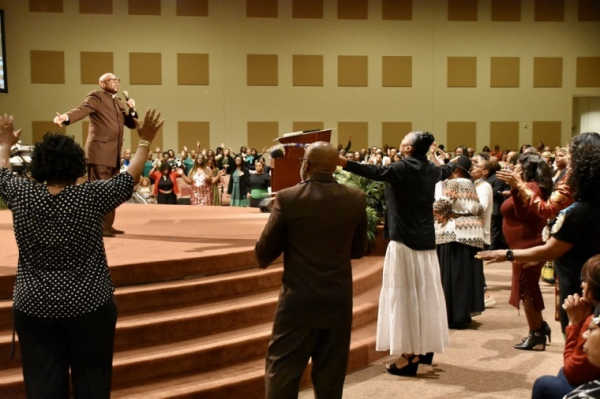
Nearly one in five U.S. adults still attend church services and worships amid concerns over the coronavirus pandemic, according to a recent poll.
The poll was conducted by three political scientists from March 23-25 -- Paul Djupe of Denison University, Ryan Burge of Eastern Illinois University, and Andrew Lewis of the University of Cincinnati.
While 88 percent of the respondents say their chapel has canceled or closed, 17 percent said they are still attending actual services.
According to Buzzfeed News, some of the 17 percent of respondents said they were still attending the service, but speculated that they might have mentioned smaller worship groups outside the church or temple.
There are several dimensions to consider "the tension between public health and worship, but perhaps most notably, for Americans, social good is against their rights," Djupe said.
In recent weeks, many churches have canceled their own services in response to concerns that they could spread the coronavirus.
Many congregations have been turned into online services, but some churches continue to hold services despite fears of an epidemic.
Solid Rock Church, a large Ohio-based church, for example, announced that it would not cancel the service in person, even though it received much criticism for the decision.
"Solid Rock Church does not force anyone to attend our services. We respect all individuals' rights to attend services or watch them online," the church said.
"We believe it is important to leave the door open for anyone to worship and pray during this time of great challenges in our country."
Ohio Governor Mike DeWine has waived an executive order banning large gatherings, while he appeared on social media and pleaded for the church to close in response to the epidemic.
"We did not order religious organizations to close, but my message to EVERYONE is that this is serious. When you are coming together, whether in a church or wherever - this is dangerous," DeWine tweeted.
"We have the ability to do religious services in other ways. I implore religious leaders to think about their congregations. Gathering in groups is dangerous."












